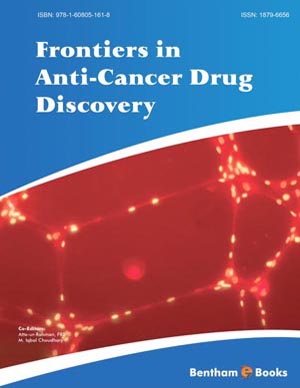Abstract
In cancer, neovascularization seems necessary for tumor progression and metastasis. The hypothesis that cancer progression is angiogenesis-dependent has repeatedly been confirmed by experimental inhibition of tumor growth with angiogenesis inhibitors. Receptors for VEGF (VEGFRs) are expressed on tumor endothelium and tumor cells and, as expected, VEGF-A overexpression is associated with poor prognosis (reduced survival). There are both positive and negative angiogenesis regulators and, as such, two strategies for inhibiting pathologic angiogenesis can be adopted: the inhibition of positively-acting agents (e.g., VEGFR inhibitors) and the administration of negatively-acting agents (e.g., angiostatin (from the Greek words "angio" and "stasis" meaning stopping)).
Keywords: Angiogenesis, Anti-angiogenesis drugs, Cancer, Growth factors, Negative angiogenesis regulators, Positive angiogenesis regulators.






















